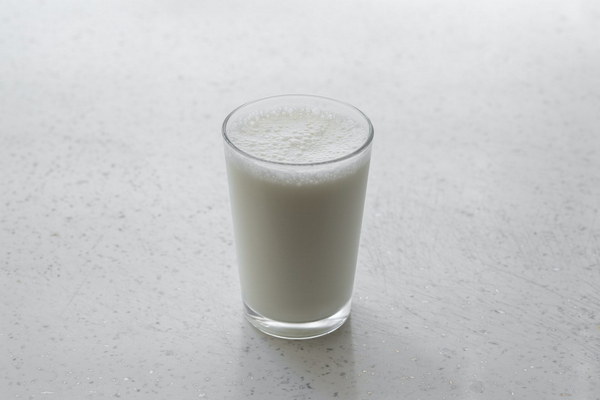Revitalizing Your Vitality A Comprehensive Guide to Traditional Chinese Herbal Tonics for Kidney Support
In the realm of traditional Chinese medicine (TCM), the concept of kidney health plays a pivotal role in maintaining overall well-being. The kidneys, according to TCM, are the root of vitality and are crucial for the production of essential substances like hormones and red blood cells. To support kidney function and enhance vitality, TCM practitioners have developed various herbal tonics. This article delves into the world of kidney-supporting herbal remedies and provides a comprehensive guide to creating personalized herbal formulas for kidney health.
Understanding the Kidneys in TCM
In TCM, the kidneys are associated with several vital functions, including:
1. Vital Energy (Qi): The kidneys are the primary source of Qi, the life force that sustains the body.
2. Essence (Semen): The kidneys are responsible for the storage and conservation of essence, which is crucial for growth, development, and reproduction.
3. Bone Health: The kidneys are closely linked to bone health, as they produce a substance called calcitriol, which helps regulate calcium levels.
4. Hormone Production: The kidneys produce various hormones, such as erythropoietin, which stimulates red blood cell production.
When kidney function is compromised, TCM practitioners may recommend herbal tonics to address the underlying imbalances and restore health.
Common Kidney-Enhancing Herbs
Several herbs are commonly used in TCM to support kidney health. Some of the most notable include:

1. He Shou Wu (Fleeceflower Root): Known for its ability to nourish the kidneys and enhance fertility, He Shou Wu is often used to treat kidney weakness and fatigue.
2. Dong Chong Xia Cao (Cordyceps Sinensis): This rare mushroom is prized for its ability to boost energy, enhance sexual function, and support kidney health.
3. Eucommia Ulmoides (Cortex Eucommiae): Also known as Du Zhong, this herb is used to strengthen the bones, support kidney function, and improve stamina.
4. Schisandra Chinensis (Schisandra): Known as Wu Wei Zi in TCM, this herb is believed to enhance Qi, nourish the kidneys, and improve mental clarity.
Creating a Personalized Herbal Formula
To create a personalized herbal formula for kidney support, TCM practitioners consider the individual's unique constitution, symptoms, and underlying imbalances. Here's a step-by-step guide to creating a kidney-supporting herbal formula:
1. Assess the Constitution: Determine the individual's constitution, which can be categorized into Yin, Yang, or Five Elements (Wood, Fire, Earth, Metal, and Water).
2. Identify Symptoms: Consider the individual's specific symptoms, such as fatigue, weakness, back pain, or poor libido.
3. Choose Main Herbs: Based on the constitution and symptoms, select the main herbs that address the kidney imbalance. For example, He Shou Wu may be used for kidney weakness and fatigue, while Dong Chong Xia Cao may be beneficial for low energy and sexual dysfunction.
4. Add Supporting Herbs: Incorporate supporting herbs that address other imbalances and enhance the formula's effectiveness. For example, Eucommia Ulmoides may be added to strengthen bones and improve stamina.
5. Customize the Formula: Adjust the dosage and combination of herbs based on the individual's response to the initial formula.
Conclusion
Herbal tonics for kidney support can be a valuable addition to a holistic approach to health. By understanding the principles of TCM and working with a qualified practitioner, individuals can create personalized herbal formulas that promote kidney health and enhance overall vitality. Remember that herbal remedies should be used under the guidance of a healthcare professional, as they may interact with other medications or have contraindications for certain health conditions.









